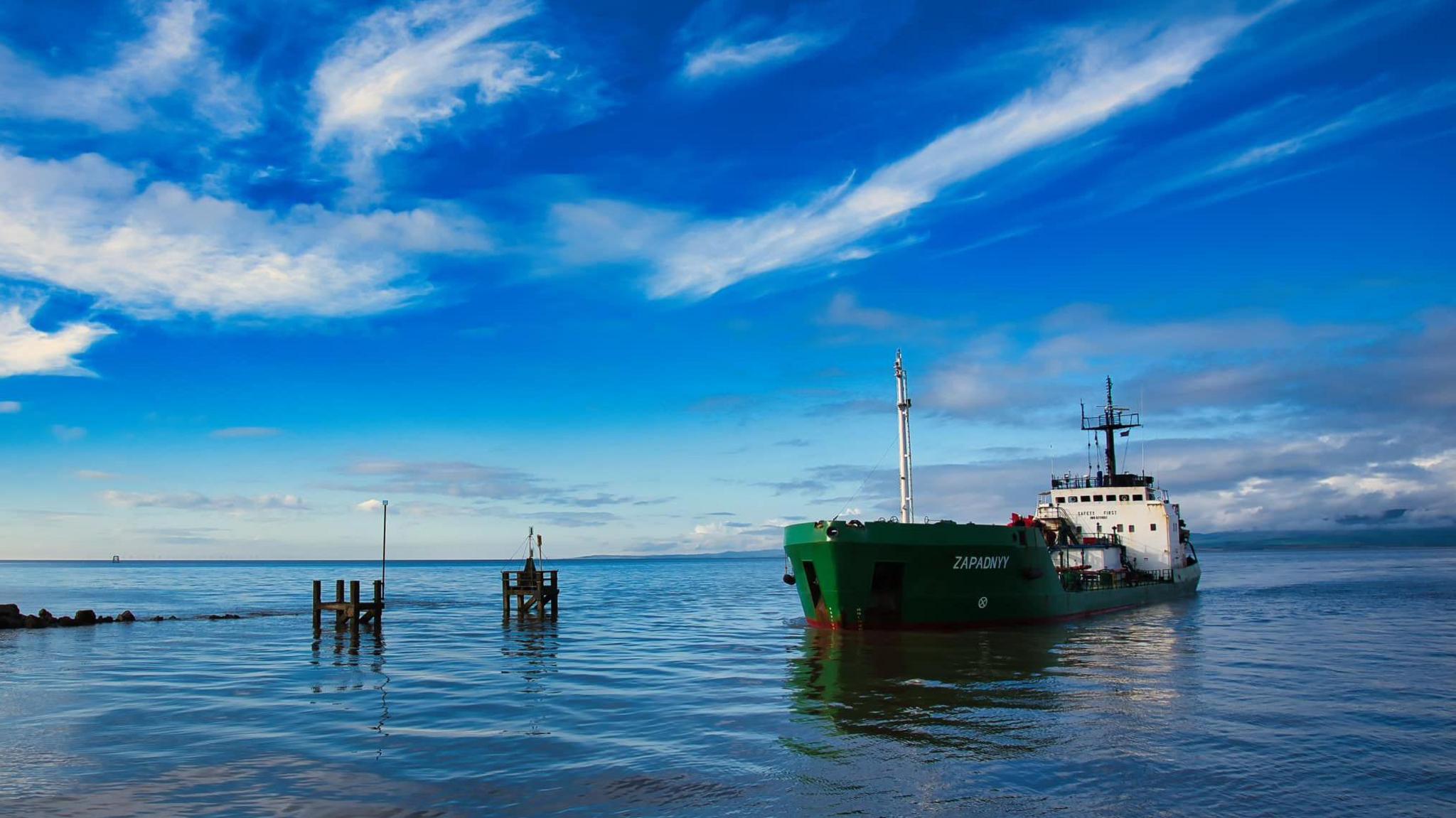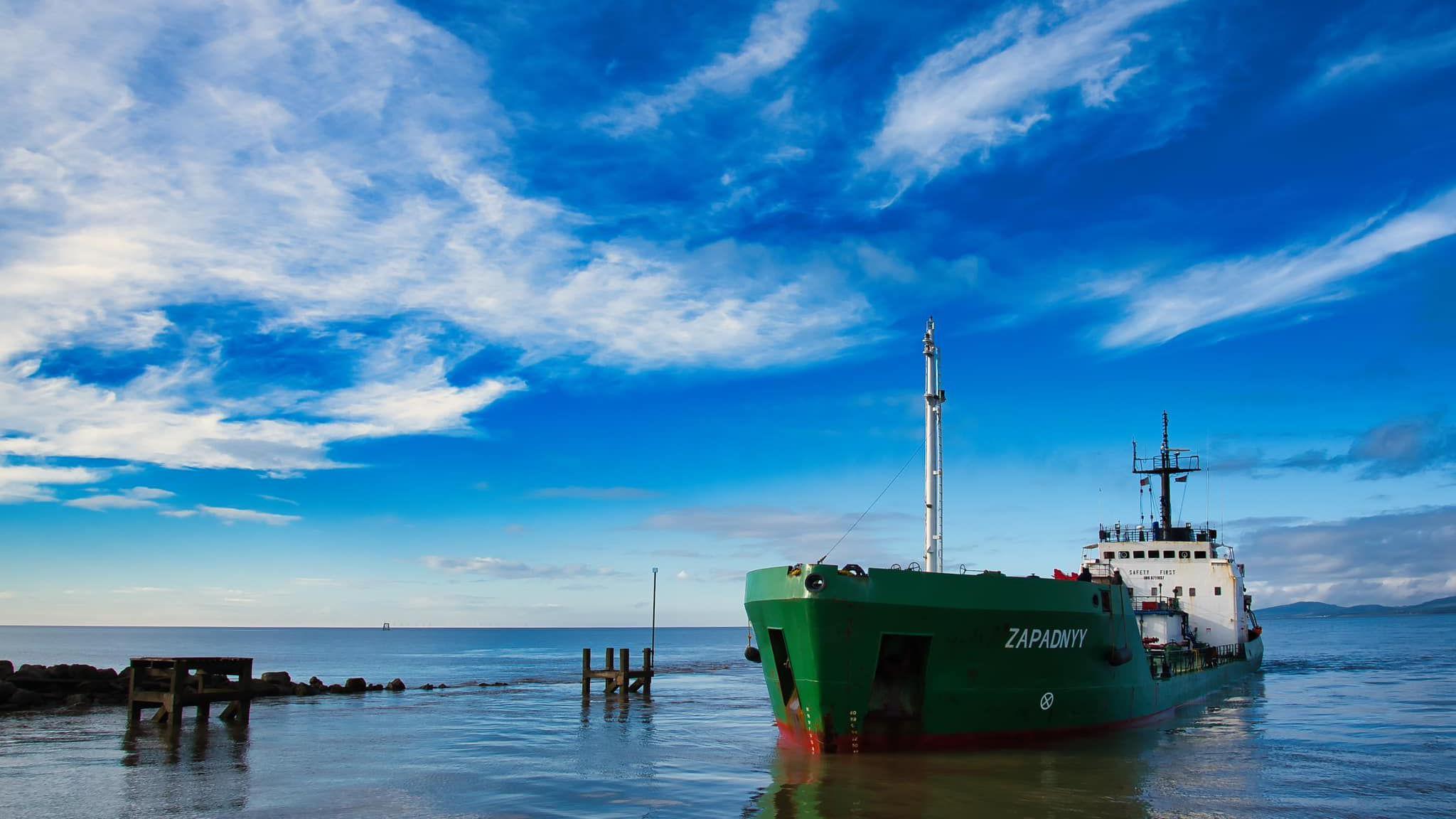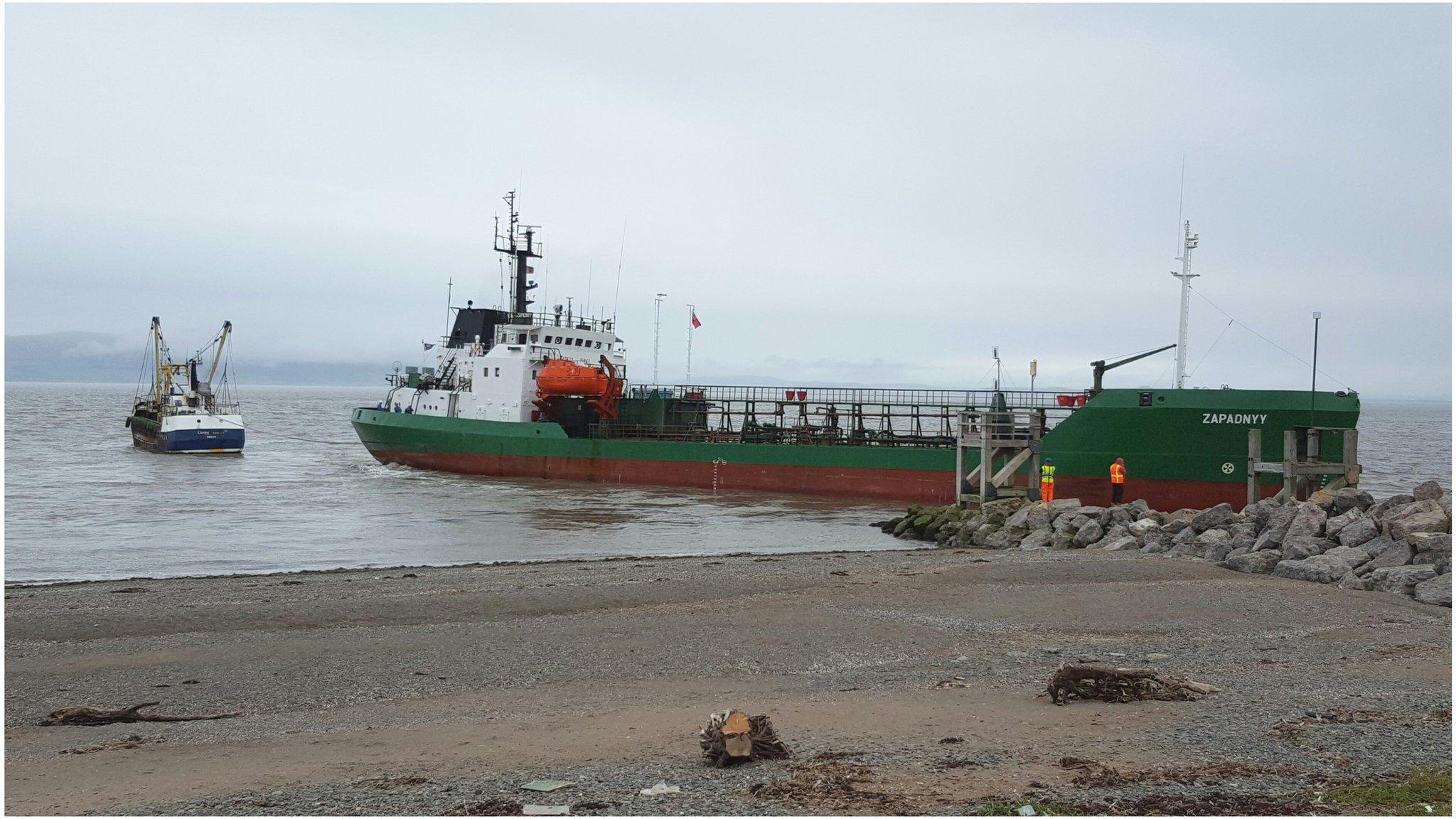Fears spilled molasses could 'choke' marine life

The Zapadnyy spilled its cargo of molasses off the Cumbrian coast
- Published
Tonnes of molasses that was spilled into the sea when a ship ran aground could "choke" marine life, a charity has warned.
The Zapadnyy cargo ship became stuck outside Silloth harbour, in Cumbria, on Saturday.
The coastguard confirmed that 300 tonnes of molasses leaked from the vessel into the sea.
Georgia de Jong Cleyndert, head of marine at the North West Wildlife Trusts, said the syrup could "smother" animals living on the seafloor.
"Molasses is an unusual spill and whilst it isn’t a toxin, it may still have a big impact on marine life," she said.
"Unlike oil (which floats), molasses sinks and more resembles the spillage of raw sewage into the ocean. This is because it is organic rich and heavy.
"It may smother animals living on the seafloor or form a soup like consistency with seawater and clog up the gills of sealife like fish."
Feeding bacteria
Molasses is a thick, heavy syrup made during the sugar refining process.
Ms de Jong Cleyndert said bacteria and algae would eat the syrup but the process could have a negative affect on wildlife.
She added: "Whilst the bacteria will break down the substance and help with the clean-up process, the decrease in available oxygen in the water column will effectively choke other species."
What is left of the molasses will eventually dissolve in the water and be flushed out by currents, she said.
The wildlife trust raised concerns that the molasses could impact Allonby Bay, to the south, which is a Highly Protected Marine Area, external (HPMA).
The Zapadnyy, a 77-metre-long tanker, had travelled from Bremen, in Germany, when it ran aground on its way to Silloth.
The coastguard said the ship ran into difficulties as it approached the harbour at about 12:00 GMT.
It was refloated on the high tide and then "safely moored" in the harbour for inspection. Nobody was injured.
The Belize-registered tanker had previously got into difficulties in a similar place in 2016.
Follow BBC Cumbria on X (formerly Twitter), external, Facebook, external and Instagram, external. Send your story ideas to northeastandcumbria@bbc.co.uk.
Related topics
More stories from BBC North East and Cumbria
- Published11 February 2024

- Published13 September 2016
